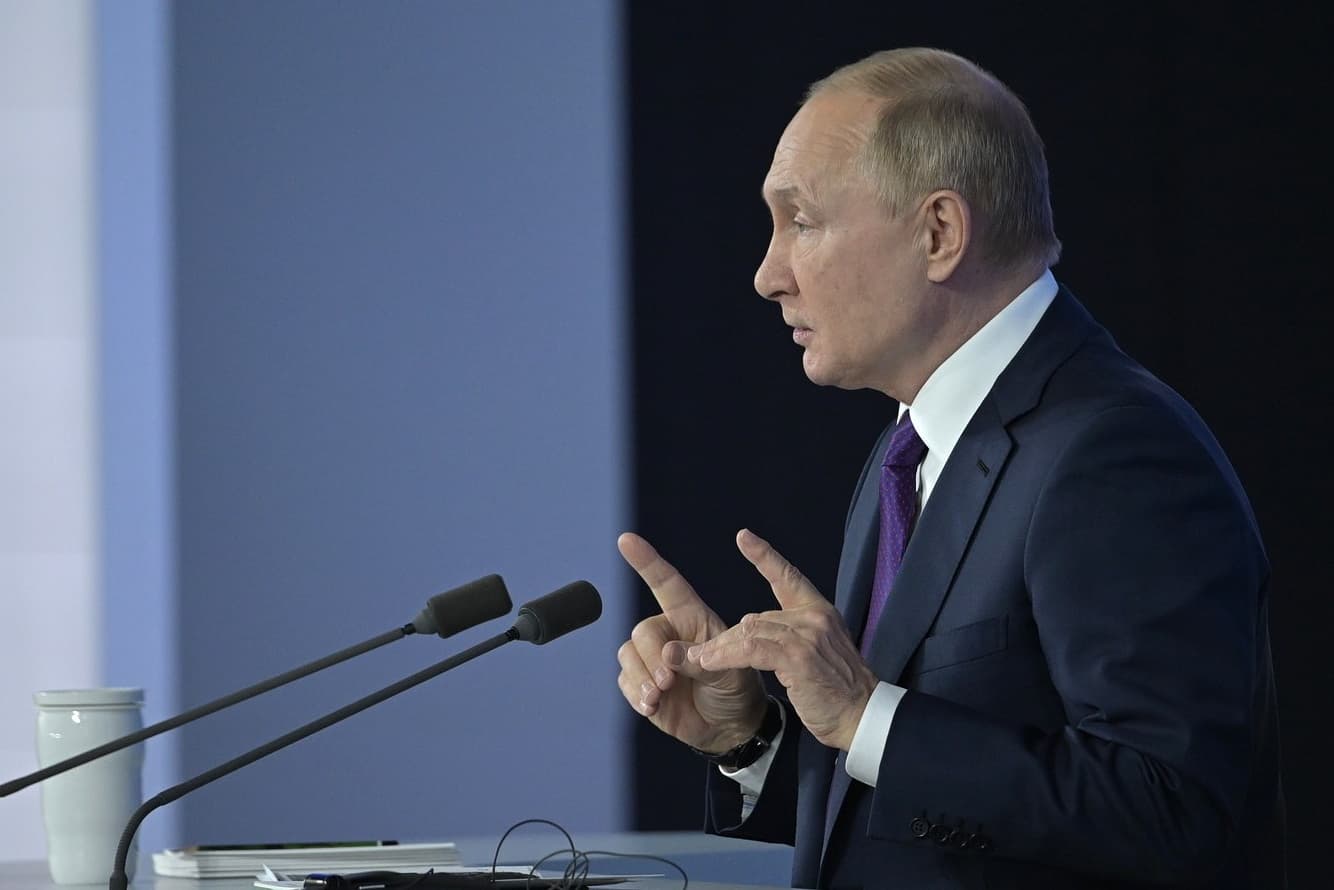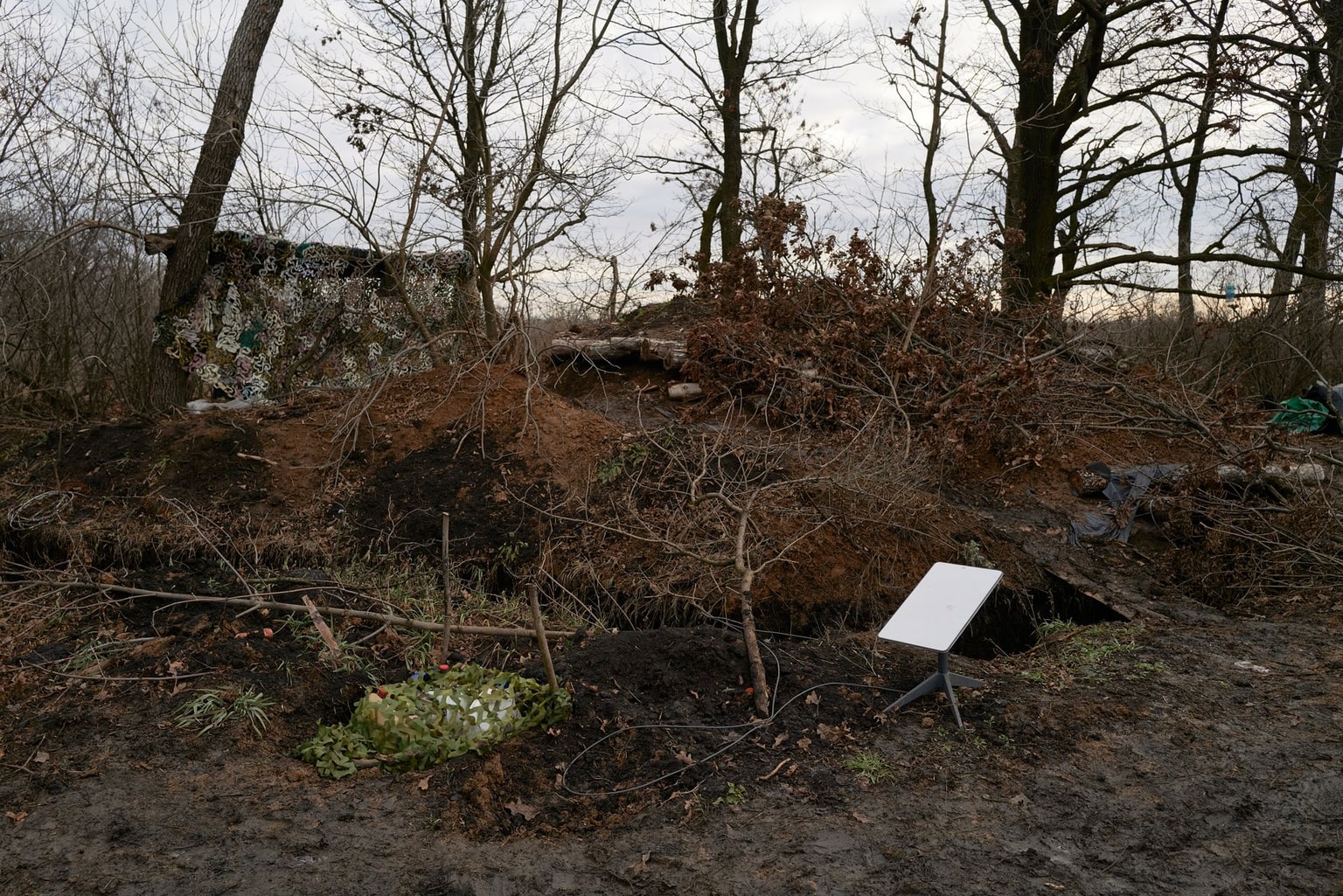Robert A. McConnell: Talk won't deter Putin. Here's what West can do

The United States has said Moscow’s demands for security guarantees are non-starter and will be off-the-table in Geneva on Jan. 10. The American delegation wants to talk about other things like the positioning of weapons in Europe.
Where is the indication Russia has any interest in talking about anything but its demands for security guarantees?
On Dec. 17 Russia publicized two texts: a “Treaty between the United States and the Russian Federation on Security Guarantees” and an “Agreement on Measures to Ensure the Security of the Russian Federation and the Member States of the North Atlantic Treaty Organization (NATO)” with the clearly expressed goal of obtaining “legal security guarantees from the United States and NATO.” And the Kremlin called for the United States and NATO to meet the treaty demands without delay.
The U.S. response was to ask for talks and they are scheduled for this week.
Russia will come to these talks with all the leverage.
The Kremlin has made very specific and very public demands. The Russian negotiators will sit at the table with their military and other chess pieces on the board and in place, locked and loaded. Comparatively the United States will bring checkers that are still in their box while waiting for Russia’s next move. The leverage is all on one side.
Yes, the United States, NATO, the EU and the G-7 have all said crippling sanctions will be imposed if Russia invades Ukraine, but they have made no genuine steps to deter Russia. There have been no pre-conditions required of Russia before Monday’s talks.
Given Washington’s history of red lines and warnings, talk is not a deterrent and it provides no leverage at the negotiation table.
Diplomacy/talking is important but if the United States is going to deter Russian aggression, and if it is going to have any leverage in negotiations bold action is necessary and time is of the essence. Serious and comprehensive actions are required. Our Friends of Ukraine Network (FOUN) has offered Emergency Recommendations.
Militarily the Biden Administration has moved some assets forward but nothing dramatic. FOUN would immediately fly an air expeditionary force into Poland with F-22s and F-35s as well as A-10s. This would be a genuine deterrent. Without saying a word or making any commitments, we would force Russian leaders and military planners to consider how to manage the capabilities this force possesses.
Additional military aid should be delivered to Ukraine now. FOUN has made specific short-term, mid-term and long-term recommendations and evidence all are being acted upon would add to deterrence. The short-term recommendations include provided capabilities now ranging from Q36 radar, more Stinger missiles, as many coastal anti-ship batteries as possible. Among other things, NATO needs quickly to upgrade its Tailored Forward Presence forces in Romania and Bulgaria.
Another deterrent would be to deliver very openly resistance warfare capabilities to Ukraine. The people of Ukraine have made it clear they will fight for the country and freedom. The Kremlin needs to see that the people of Ukraine have the warfare capabilities to make any attempted occupation very costly.
Economically the Biden Administration and apparently allies privately have clearly told Moscow the type and breath of sanctions that will be applied should Russia invade. But no sanctions have been applied to the actions already taken with Russia’s threatening military build-up on Ukraine’s border and the many dislocations and harms they have caused. There is still time for pre-conditions that if not met do trigger a painful set of sanctions.
The information war has for too long been conceded to Moscow. One may not be able to respond to every lie being told but serious effort should start immediately.
Start with two initiatives.
The first is to have serious United States government rebuttals to blatant misrepresentations of reality and outrageous accusations.
Second, stop conceding the Russian-speaking populations of Ukraine and Russia to Moscow propaganda. This critical audience needs to hear truth. The Voice of America has but one Russian-speaking reporter on the ground reporting from Ukraine. The essential Russian-speaking people in Ukraine and Russia are a fundamental theatre in Russia’s propaganda campaign. They should be at least as critical audience for truth. New Russian-speaking reporting capabilities need to be deployed and up on-air immediately.
Robert A. McConnell is co-founder of U.S.-Ukraine Foundation (USUF) and director for external relations of USUF’s Friends of Ukraine Network. Previously, he has served as head of the Government Advocacy Practice at Gibson, Dunn & Crutcher, Vice President – Washington for CBS, Inc, and Assistant Attorney General in the Department of Justice during the Reagan Administration.








